1/8 Thread: Phil Fisher's investing philosophy
If Ben Graham popularized "value investing", Phil Fisher was the OG of "growth investing". Buffett even characterized his philosophy as "85% Graham and 15% Fisher".
Just read a good piece on Fisher. Some quick notes.
If Ben Graham popularized "value investing", Phil Fisher was the OG of "growth investing". Buffett even characterized his philosophy as "85% Graham and 15% Fisher".
Just read a good piece on Fisher. Some quick notes.
2/8 Here's how Fisher defined "growth company". The last point really stands out:
"the advantage cannot be meaningfully gauged with numbers and mathematical formulas."
"the advantage cannot be meaningfully gauged with numbers and mathematical formulas."
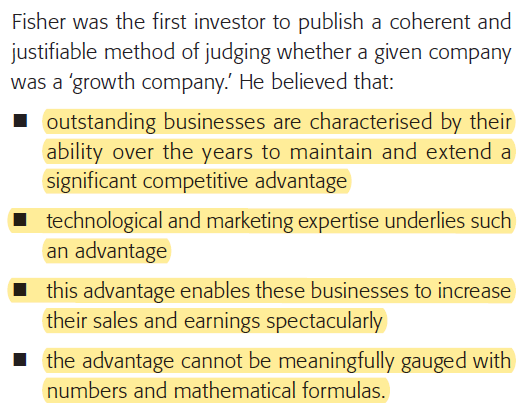
3/8 "no investment philosophy, unless it is just a carbon copy of someone else’s approach, develops in its complete form in any day or year. In my own case, it grew over a considerable period of time" 
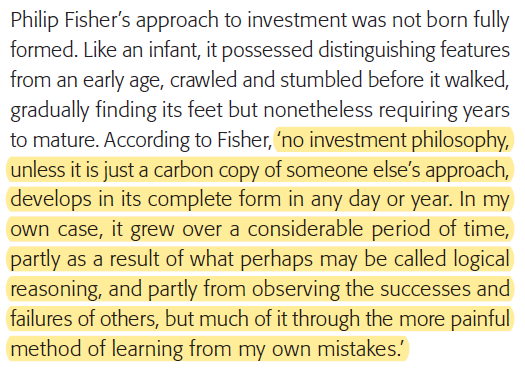
4/8 Fisher started his firm after losing his job during Great Depression. In 1932, he was making $2.99/month, equivalent of newspaper hawker's wages.
Yet Fisher considered those two years "most profitable years" since he was able to build a strong foundation for his business.
Yet Fisher considered those two years "most profitable years" since he was able to build a strong foundation for his business.
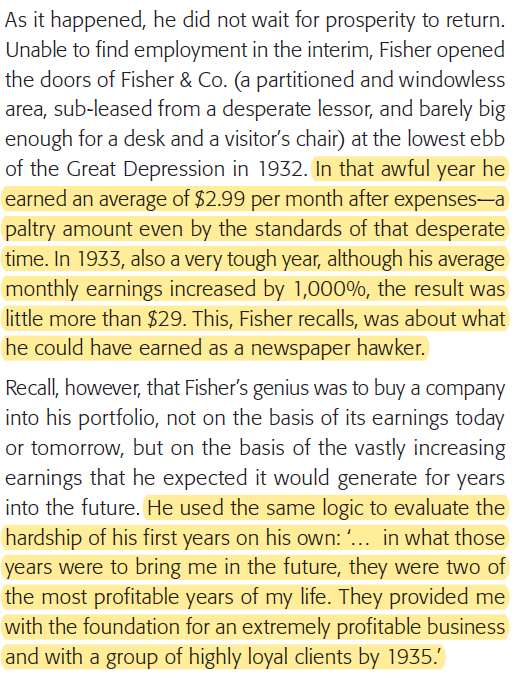
5/8 When is a good time to buy?
"virtually any time"
Fisher had a deep aversion to macro forecasts. He didn't mince his words on the futility of such an endeavor.
"virtually any time"
Fisher had a deep aversion to macro forecasts. He didn't mince his words on the futility of such an endeavor.
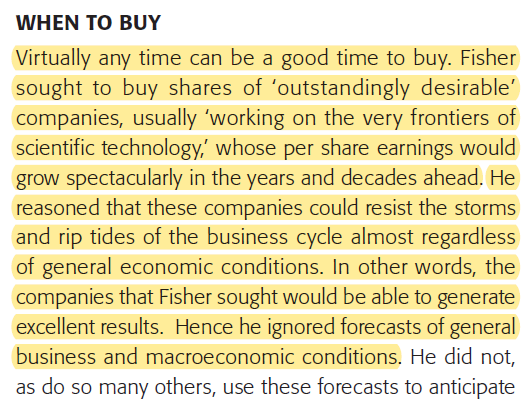
6/8 When is a good time to sell?
Fisher provides only three reasons to sell (preferably infrequently). See image.
Note that Fisher never had more than 17 companies in his portfolio, usually <10, and top 3 often was 75% of his AUM.
Fisher provides only three reasons to sell (preferably infrequently). See image.
Note that Fisher never had more than 17 companies in his portfolio, usually <10, and top 3 often was 75% of his AUM.
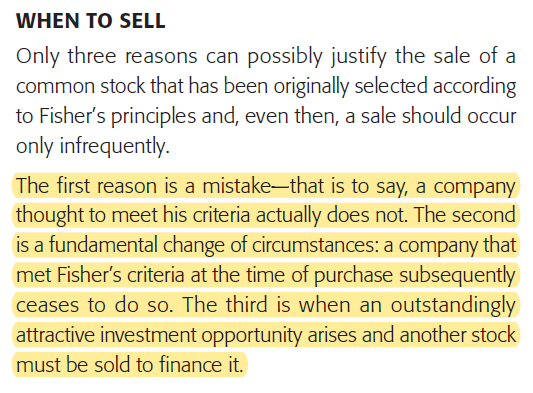
7/8 A good adage to remember:
"there are enough spectacular opportunities among established companies that ordinary individual investors should make it a rule never to buy into a promotional enterprise."
"there are enough spectacular opportunities among established companies that ordinary individual investors should make it a rule never to buy into a promotional enterprise."
8/8 Link to the full piece: aksjefokus.no/wp-content/upl…
All my twitter threads: mbi-deepdives.com/twitter-thread…
All my twitter threads: mbi-deepdives.com/twitter-thread…
• • •
Missing some Tweet in this thread? You can try to
force a refresh




















